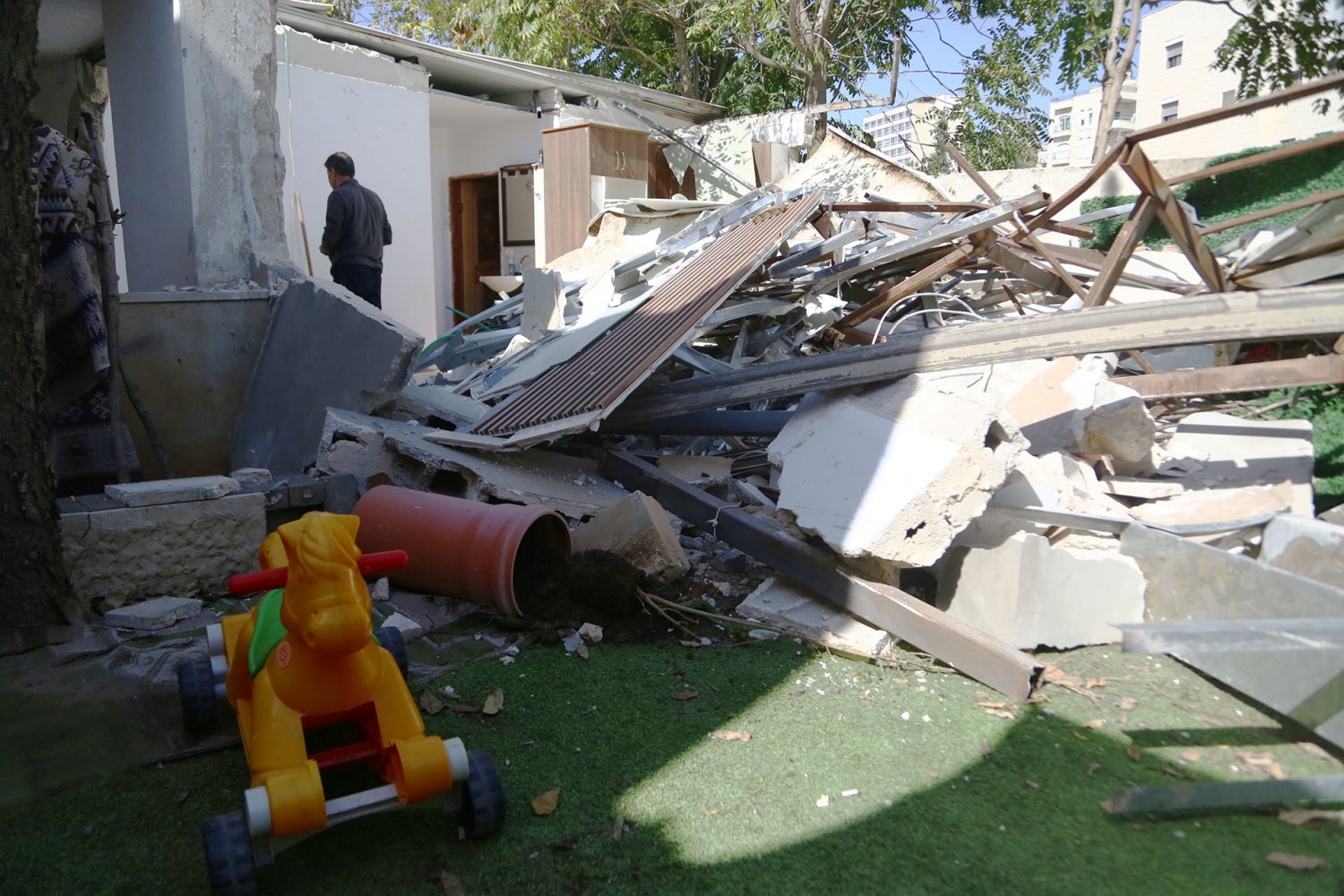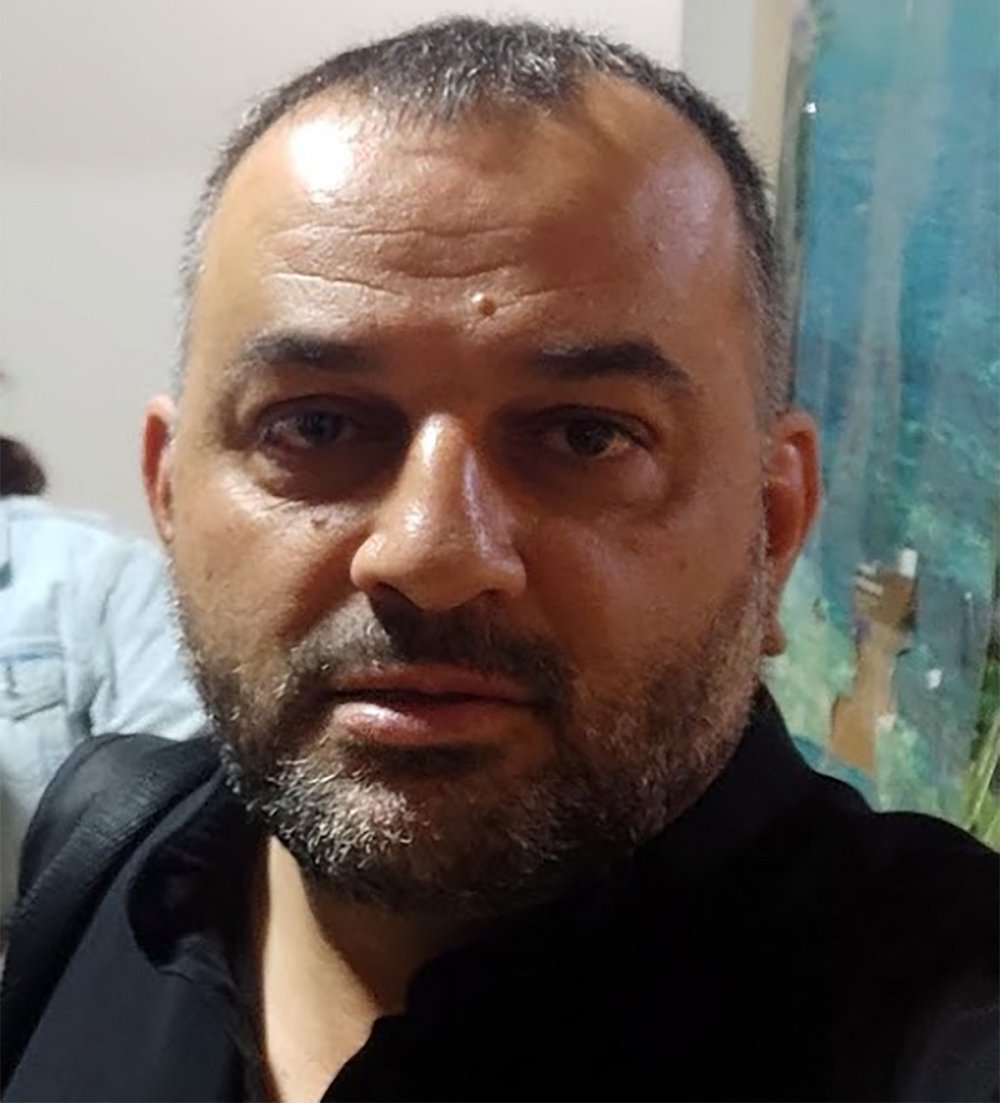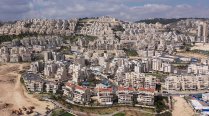Introduction
Rami Saleh is a human rights activist and the director of the Jerusalem branch of the Jerusalem Legal Aid and Human Rights Center (JLAC). Founded in 1974, the JLAC offers pro bono legal aid to Palestinian communities in East Jerusalem and the occupied Palestinian territory (oPT) to combat Israeli human rights violations, including home demolitions, forced displacement, land confiscation, and settler violence. In addition, the JLAC offers Palestinians legal protection against violations of the Palestinian Authority (PA) in areas of the occupied West Bank.
Each of the successive Israeli wars on Gaza over the last 15 years has led to dramatic increases in Israeli human rights violations against Palestinians in Jerusalem and the remainder of the oPT. For example, following the eruption of the April 2021 Unity Intifada, which included an 11-day war on Gaza, Israel approved the construction of 14,915 settlements in East Jerusalem between May 2021 and September 2022.1 In 2021, it also announced 181 self-demolition orders against Palestinian homes, up from 75 in 2015.2
Since October 7, 2023, when Hamas invaded Israel and Israel declared war on Hamas, the JLAC’s work has accelerated drastically. Saleh sat down with Jerusalem Story on October 26 to share what’s happening to Palestinians across the city and beyond.
Jerusalem Story: How does your organization support Palestinian Jerusalemites?
Rami Saleh: JLAC was established in 1974 by the Quakers. It is the oldest Palestinian human rights organization, and we’re preparing for our golden jubilee next year. Our main mission is to defend Palestinian Jerusalemites from forcible displacement. We were the first organization to file a petition against the Alon settlement, which was built in 1990 just east of Jerusalem in the West Bank.
In 1990, we registered as an independent Palestinian organization in Jerusalem in the Israeli registrar, so we could provide litigation for people using the Israeli legal system. Also, in 2003, we registered with the PA so we could protect people against the PA as well as the Israeli legal system. This way, our work extends to all Palestinians whose rights are violated, whether by the PA or Israel, in areas A, B, and C, as well as East Jerusalem.
Our work also includes lobbying against the detainment of the bodies of Palestinians who were killed by Israeli forces. Just today, I reported to UNICEF that Israel still holds 150 Palestinians’ bodies, denying them and their families burials. These numbers do not include bodies captured and detained since October 7.
JS: How has your work supporting Palestinian Jerusalemites changed or increased since October 7, 2023?
RS: I’ll start with what happened last week. On Saturday, October 21, 2023, we spoke with the father of Khaled Muhtaseb, a young Palestinian who was killed by the Israeli police on Salah al-Din Street in Jerusalem on October 19. He was accused of planning to carry out an attack against Israeli forces as a result of what’s happening in Gaza. His father wanted his son’s body back, and we presented his request to the Israeli authorities to return his son’s body so he could be buried.
I also asked the father if Israel had issued a demolition order against his house, to which he said that it had not, but he explained that Israeli authorities verbally told him his house would be demolished and that they came to take measurements of the house. Then, the demolition order came, and it said that they would be demolishing the whole building, which is home to eight other Palestinians. So, because one of the people living there was accused of planning to carry out an attack, the homes of eight other people who had nothing to do with the alleged crime will also be demolished.
Israel actually did this again last week. It issued a demolition order for an entire building in Jerusalem for an attack one of its residents carried out against Israelis this year. So, you can imagine how Israel is dealing with Palestinians in Jerusalem. They even give out tickets and fines for things like having a washing machine in the yard of a house—a ticket for NIS 500. We heard another report that someone was fined because there were cigarette butts on the road outside his house. He doesn’t even smoke. Another person told us they got fined because there were pigeons on the roof of their building.
A young Palestinian female lawyer in Jerusalem wrote on X [formerly known as Twitter—Ed.] on October 7: “Am I dreaming?” The Israeli Bar Association wanted to revoke her membership for one of her posts showing support for Gaza. She filed a complaint to the police and they arrested and detained her for three days. When we speak up for the people of Gaza, we get accused of supporting Hamas.
So, human rights violations have increased dramatically in many ways since October 7, including more court cases, demolition orders, fines, and overall unfair treatment. People are being told they have 24 hours to prepare for their houses to be demolished. We’re working around the clock to stop these things from happening.
JS: Are these reactions far more extreme than what you’ve experienced before?
RS: Yes. To tell you the truth, it’s surprising us, even though we can’t compare our situation in Jerusalem to what’s happening to Palestinians in Gaza. We’re speechless and helpless against what is happening there. In Gaza, we are facing a new Nakba against our people, against our nation.
JS: How is your organization coping with the influx of urgent work?
RS: We’re working with the resources we have, though yes, we have a shortage. In our Jerusalem office, we have 12 team members, and not all of them can access our different offices. My colleague in Jerusalem cannot reach our office in Ramallah, for example, because of Israeli closures across the oPT.
We are in the middle of the harvest season, and people can’t reach their lands to pick olives. Usually, we go to courts and civil administrations to fight these cases, but right now, we can’t. Settlers are killing Palestinians harvesting their olives. A few weeks ago on October 12, Israeli settlers attacked a funeral of four young men who were killed by Israeli forces in a village near Nablus. The settlers shot a father and his son attending the funeral.
We don’t have any expectations. This regime is biased. It’s an unfair legal system that does not provide justice for Palestinians. Even if we get 10 more lawyers, this won’t help. We’ll be in the same place. All we can do is continue our strategy, which is to provide our people with safety and buy time to protect them from home demolitions.
JS: How will this war change the nature of your work?
RS: Uncertainty is something that we are used to. After October 7, we received an email from a Swiss governmental agency saying it is suspending our funding. It withdrew funding from lots of Israeli and Palestinian human rights organizations, most of them providing legal aid for Palestinians in the West Bank and Gaza. The fourth paragraph of the email the agency sent said it is going to review our compliance with the anti-terror clauses and review our approach to anti-Semitism. So, from letters like this one, we can see this war will make our work even harder.
JS: Are you experiencing increased surveillance from inside Jerusalem and from across Europe?
RS: Yes, from Europe as well. There’s a double standard and hypocrisy. What’s happening in Gaza is a genocide and a war crime, but no one is holding the Israeli army or government accountable. Instead, they accuse their victims of being antisemitic.
JS: Are you concerned about the future of JLAC?
RS: No, this is a strength of JLAC. We have a variety of partners and we do not allow one partner to provide more than 20 percent of the annual budget. We have more than 12 partners, which allows us to replace any who withdraw their funding. For example, JLAC suffered a lot in 2020 after the EU issued new restrictive regulations and conditions, and after smear campaigns against Palestinian organizations in Israel and Europe. But we will always continue to provide legal representation to the Palestinian community.
JS: How do you think your work providing legal aid might evolve after this war?
RS: We don't know. We are living in uncertainty, even though we have a five-year strategy. This war wasn’t in our plan, but right now, Israel is separating Palestinian villages and cities, severing the north of the West Bank from the south. The Israeli army is dealing with Palestinians in an inhumane way. All we know is we are going to keep providing services to our people.
JS: What are your predictions for the future of Jerusalem?
RS: Before 1948, there was a vision for Jerusalem to be an international city—not for Jews, not for Arabs, but for everyone. But we have been living the same difficult reality since 1948.
Last week, I was in Ramallah, and on my way back to Jerusalem, I was held up at the Israeli checkpoint for one hour. The soldier told me to get out of the car, even after I showed him my Jerusalem ID. He opened all the compartments of my car and threw all my things on the floor of the car, including my wallet and my phone. Then, he said that since I have a package in the car, I need to go to a different checkpoint. What was the package? I had two packs of A4 paper and ink for the printer. He spoke to me in a very inhumane way. But I didn’t want any trouble, so I turned around and went back through another checkpoint to Jerusalem. This is how we are being treated.
In East Jerusalem, soldiers are checking people’s mobile phones. Sixty-four young men have been arrested in Jerusalem since October 7 because the army went through their phones and found media that they considered to be related to Hamas. This happens on a daily basis. Any young man who wants to get into the Old City of Jerusalem will be checked.
There are several human rights organizations based in the Old City that had to rent offices in Beit Hanina because they haven’t been able to enter the Old City since October 7. So, they had to move in order to continue to provide legal aid.
Right now, settlers are harassing and attacking Palestinians. They are shooting from their settlements into neighboring Palestinian refugee camps. They are projecting the Israeli flag onto Palestinian houses with a laser. They are provoking Palestinians. So, my prediction for Jerusalem is not optimistic.
JS: Is there anything you’d like to add?
RS: We must be very careful. There is a lot of incitement in Jerusalem. We know that many Palestinian influencers have been arrested—dozens of artists, singers, and cultural figures from ’48 have been arrested. Doctors have been fired from hospitals. My colleague forwarded me a WhatsApp message they received from the Israeli government in Hebrew. It says: “It is common for Israeli Arabs to upload a black profile picture on the occasion of identification with the enemy. If anyone knows anyone doing this, report them to the authorities and their workplaces.”
This is what we’re dealing with now. We’re in a very dangerous situation.
Notes
“Illegal Expansion: Latest Israeli Settlement Projects in East Jerusalem,” JLAC, September 2022.
“Self-demolition in Jerusalem: Between the Hammer and the Anvil,” JLAC, September 2022.



